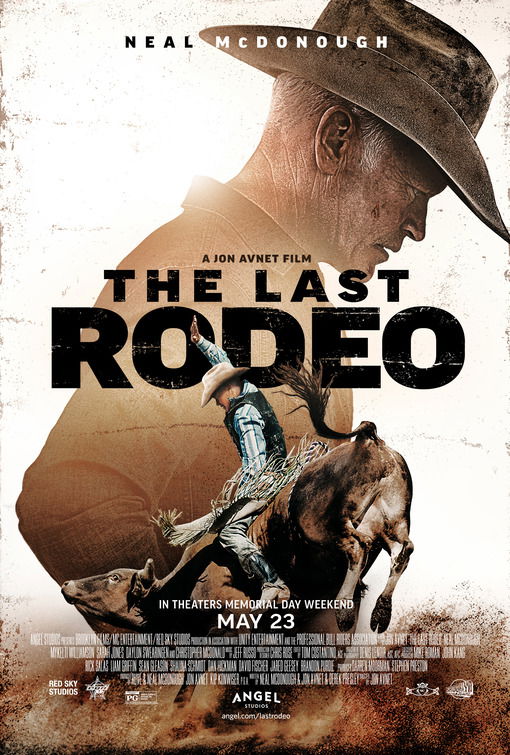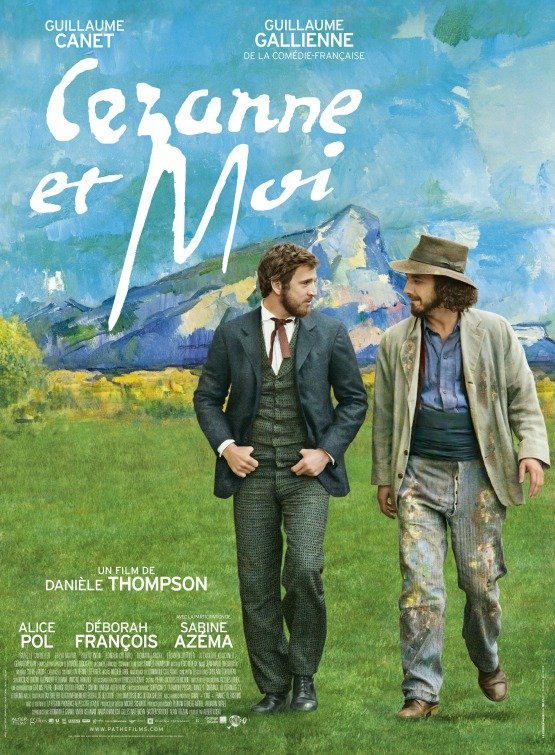“Intriguing Art Biography But Flawed”

| None | Light | Moderate | Heavy | |
|---|---|---|---|---|
| Language | ||||
| Violence | ||||
| Sex | ||||
| Nudity |
What You Need To Know:
The good news is that, in his last 10 years, Cezanne began to get the recognition he deserved. Also, after his death in 1906, his later paintings inspired the highly influential cubist movement founded by Picasso. The end of CEZANNE ET MOI highlights this happy part of Cezanne’s legacy. Ultimately, it’s a fascinating portrait of Cezanne and Zola. However, CEZANNE ET MOI is confusing at times, gives too little attention to Zola’s accomplishments and contains scenes with explicit nudity and lots of strong foul language.
Content:
(RoRoRo, ACap, So, RH, LLL, S, NNN, AA, D, MM) Very strong Romantic worldview concerning art in a story focusing on the most influential Post-Impressionist painter in France (during the end of the 18th Century and the first six years of the 19th) and his on-again, off-again friendship with the most famous French novelist at the time, both of whom criticized capitalist society, so there’s some light anti-capitalist, socialist elements to the story (including a couple vague attacks on the “bourgeoisie”), but the story focuses more on their philosophy of art and their friendship rather than politics, but with some revisionist history that doesn’t refer to the painter’s return to his Catholic faith in his old age (though how strong that faith was isn’t clear from the historical record except that the painter sided with the church in a famous political controversy of the day, but his former friend was on the other side, and the Catholic Church later apologized for its position, which has been deemed anti-Semitic); about 56 obscenities of various kinds (one-third or more are “f” words) and five strong profanities; no real violence; no depicted explicit sex but a few references to prostitution, painter lives with his girlfriend for 17 years before marrying her, novelist cheats on his wife and has two children with his mistress (his wife couldn’t conceive for some reason), and painter’s wife poses as a nude model for him in one scene (something which she didn’t do in real life), and he complains about the complexion of her skin and then touches her breast; slightly obscured full frontal female nudity in a couple scenes where women pose nude for painter(s), upper female nudity when women pose nude for painter, rear female nudity in one or two scenes, and images of nude paintings; alcohol use in several scenes and drunkenness in one or two scenes; smoking but no drug ruse; and, people argue with one another, people are rude with one another, and novelist says cruel things about his painter friend in two or three scenes but the painter overhears them, and it sours their relationship further, even when the painter desires to reconcile with the novelist at the end of their lives (in one scene, for example, the novelist says that the painter’s genius is “stillborn” or incapable of coming to fruition, but his judgment here turned out not to be true).
More Detail:
The movie opens with a middle-aged Cezanne and his wife coming to see Zola and his wife after Cezanne and Zola had let their friendship wane. Though happy to see one another at first, Cezanne soon becomes very upset discussing Zola’s new novel, THE MASTERPIECE, which focuses on a fictional painter, patterned after Cezanne, who eventually commits suicide. Cezanne is personally offended by the novel’s portrayal and considers it a personal insult. So, he totally breaks off the friendship.
Flash back to 1852 when Paul and Emile met as young teenagers and became close friends along with another boy. Paul’s father was rich, but Emile’s family became poor after his father died when Emile was young. Six years later, Emile moves to Paris, where Paul soon joins him in 1860 to pursue a painting career. They become friends with other painters, including Manet, Monet, Renoir, and Pissarro, who eventually mentors Paul in the techniques of impressionism.
However, as Emile achieves success and fame as a novelist, the irascible Paul has problems getting recognized as a talented painter. Also, Emile steals away and marries a woman with whom Paul was enamored. In addition, although Emile expresses strong support for Paul’s work, he comes to believe that Paul’s rude, inconsistent behavior is holding him back, including his talent. Meanwhile, Paul comes to believe that Emile has joined the bourgeoisie or middle class that Emile criticizes in his novels.
Paul’s rudeness irritates Emile, but Emile’s cruel criticisms of Paul’s talent drives a wedge between them that’s exacerbated by Emile’s controversial, thinly-veiled novel about his old friend.
CEZANNE ET MOI is a fascinating look into the lives and work of two acclaimed French artists. The movie gives a glimpse into what made them so influential, but, in the end, it reveals more about Cezanne and his later paintings, which became so very influential in the art world, than it does about Zola’s long career. For example, the end of the movie literally shows how Cezanne’s multiple paintings of a mountain near his home in the South of France, Mont Sainte-Victoire, became more and more abstract. As an inscription before the final credits reads, Picasso, the acclaimed abstract painter, said that Cezanne was “the father of us all.” Thus, Cezanne is one of the fathers of modern abstract art, beginning with the famous cubist style invented by Picasso and his friend, Georges Braque. Of course, a more cynical person might opine (after seeing Cezanne’s increasingly abstract paintings of the French mountain at the end of CEZANNE ET MOI), that, perhaps, Cezanne’s eyesight just became worse and worse toward the end of his life. After all, he did suffer from diabetes, a disease which is known to cause blindness in its sufferers.
As suggested above, though often fascinating, with solid acting, the story and plot in CEZANNE ET MOI are sometimes confusing. Thus, it might help viewers to read something about the two men’s lives and their friendship BEFORE seeing the movie rather than AFTER seeing it.
CEZANNE ET MOI contains plenty of strong foul language and scenes with explicit nudity when Cezanne is painting various nude models. Also, the movie shows Zola having an adulterous affair with a young housekeeper, with whom he had two children. Finally, Cezanne lived with his wife Hortense for 17 years before they married in 1886. The movie doesn’t mention, however, that Cezanne reportedly said at the time of their marriage that, by then, he no longer had any feelings for Hortense, and they soon separated. Historians have called Hortense “high maintenance” and “self-absorbed.” There seems to be some evidence for this judgment because Cezanne left all his estate to their son, Paul, and Hortense sadly gambled away the estate settlement she received from her son.
Ultimately, like the artists in the era that CEZANNE ET MOI depicts, the movie displays a strong Romantic worldview promoting the artist’s personal expression of reality and aesthetic sensibilities or beauty. Despite some attacks on the “bourgeoisie” or middle class in capitalist society (Zola leaned toward a socialist view of society), the movie is more concerned with Zola and Cezanne’s personal relationship and their views on art rather than their politics, including Zola’s sociology. Apparently, the older Cezanne returned to his Catholic faith as a boy (he attended Catholic schools), but the extent of his faith is difficult to determine from the historical record MOVIEGUIDE® researched to write and edit this review. That said, although personal expression is clearly important to the Cezanne depicted in CEZANNE ET MOI, at the end of his life, according to various biographies, Cezanne believed he was trying to discover and paint the essential structure of the reality people see around them rather than the surface appearance of it. Such a theory or technique of creating art is not necessarily a Non-Christian theory or technique.
Even so, MOVIEGUIDE® advises extreme caution for CEZANNE ET MOI. However, whatever one thinks of Emile Zola and Paul Cezanne, their lives and their work, or this movie, there’s no denying their social and cultural influence on the 19th and 20th Century.


 - Content:
- Content: 

